In today’s rapidly evolving manufacturing landscape, the role of a CNC machinist stands out as both pivotal and dynamic, necessitating a closer examination into what fuels it – particularly, a CNC machinist’s salary. As we venture into 2024, understanding the intricate details of how and why these salaries vary across different regions has become more crucial than ever. This isn’t just about numbers; it’s about recognizing the value CNC machinists bring to the industry and how this translates into their compensation. Our look into CNC machinist salary rates not only highlights the profession’s economic status but underscores its importance in the broader scope of manufacturing and technology.

We will delve into several key areas to give a comprehensive overview of CNC machinist salary. This includes understanding the roles CNC machinists play, the factors influencing their salary scales, and how these scales differ across the United States. Additionally, we’ll explore the impact of education and certifications on salaries, observe salary trends over the years, and compare CNC machinist salary to those in similar professions. Given the complexity of salary negotiation, we will also provide tips for CNC machinists aiming to secure a better salary. By mapping out these aspects, our aim is to offer a well-rounded guide that not only informs but aids CNC machinists in navigating the financial facets of their career.
Understanding CNC Machinist Roles
Definition of CNC Machinist
A CNC (Computer Numerical Control) machinist operates and programs machine tools such as lathes, mills, and grinders that are controlled by a computer to produce precision metal or plastic parts. The role of a CNC machinist is to operate and maintain CNC machines, ensuring that they produce parts to exact specifications. This involves setting up the machines, writing and testing programs, making adjustments as needed, and using precision measuring instruments to ensure that completed parts meet the required standards.
The Importance of CNC Machinists salary in Manufacturing
CNC machinists are a vital part of today’s manufacturing industry. Their expertise in handling CNC machines allows for the production of complex parts with high precision, which is essential in industries such as aerospace, automotive, and medical devices. The ability to produce consistent and quality parts efficiently makes CNC machining invaluable for mass production. Moreover, the automation of CNC machines leads to improved safety and reduced labor costs, enhancing overall manufacturing productivity.
Skills Required for a CNC Machinist salary
The role of a CNC machinist requires a diverse set of skills ranging from technical know-how to physical stamina. Key skills include:
- Technical Skills: Proficiency in CAD software and familiarity with G&M code or CNC controllers are crucial for programming and operating CNC machines salary. Machinists must also be able to read and interpret blueprints, schematics, and technical drawings.
- Mathematical Skills: A strong foundation in mathematics helps machinists calculate precise measurements and adjustments necessary for the machining process.
- Mechanical Skills: Understanding the mechanics of the machines and the properties of different materials is essential to ensure that machines are set up and operated correctly.
- Physical Stamina: CNC machinists salary often need to stand for long periods and handle heavy materials, requiring good physical health and endurance.
- Attention to Detail: Precision is paramount in CNC machining, as small errors can lead to significant discrepancies in the final product.
- Problem-Solving Skills: Machinists must quickly identify and resolve issues that arise during the machining process to maintain production schedules and quality standards.
By mastering these skills, CNC machinists salary play a critical role in the manufacturing process, contributing to the creation of precise and reliable products.
Factors Influencing CNC Machinist Salaries
The compensation of CNC machinists is influenced by a combination of factors including experience and expertise, geographical location, and industry demand. These elements collectively shape the economic landscape for professionals within this field.
Experience and Expertise
Experience plays a pivotal role in determining the CNC machinist salary. Entry-level machinists with less than a year of experience generally earn around $15 per hour, while those with 5 to 9 years of experience can expect to make about $20 per hour. As CNC machinists accumulate experience and develop their skills, their value and compensation increase. Advanced roles like CNC programmers or set-up machinists often command higher salaries due to the additional responsibilities and expertise required. For instance, seasoned professionals can earn up to $60,029 annually, reflecting their enhanced skill set and the critical nature of their work in manufacturing precision parts.
Geographical Location
Salaries for CNC machinists vary significantly across different regions, influenced by factors such as cost of living, local labor markets, and regional economic conditions. For example, CNC machinists salary in Hawaii earn an average salary of $66,550, which contrasts sharply with those in Illinois, where the average salary is approximately $42,800. States like Massachusetts and California offer higher average salaries, around $54,280 and $55,000 to $60,000 respectively, due to their high cost of living and advanced manufacturing sectors. Conversely, regions with a lower cost of living, like South Carolina, tend to have lower average salaries, around $33,137.
Industry Demand
The demand for CNC machinists within various industries also significantly influences salary levels. Industries with higher complexity and precision requirements, such as aerospace and defense, typically offer higher wages to attract skilled machinists capable of meeting stringent standards. Additionally, the scarcity of skilled CNC machinists can drive up salaries as employers compete to secure top talent. Market demand for these professionals is not only limited to traditional manufacturing but extends to emerging sectors that rely on precision engineering, further impacting earning potential.
By understanding these factors, both employers and CNC machinists can navigate the complexities of compensation in the field more effectively. This knowledge is crucial for machinists aiming to advance their careers and for employers striving to establish fair pay practices that reflect the value and expertise that skilled machinists bring to the industry.
Average CNC Machinist Salary in the United States
National Average Salary Overview
The national average salary for a senior CNC machinist in the United States is approximately $56,133 annually. This figure is derived from the national average hourly wage of about $27. These figures serve as a benchmark for understanding the compensation of senior CNC machinists across the country. Additionally, benefits often accompanying this salary include health insurance, life insurance, pension plans, and covered training costs, which significantly enhance the overall compensation package for these professionals.
Top Paying States for CNC Machinists salary
Salaries for senior CNC machinists can vary significantly across different states due to various factors such as the cost of living and local economic conditions. For instance, Massachusetts offers one of the highest average salaries for machinists at approximately $54,280 annually. In contrast, states like South Carolina present lower averages, around $33,137. Other states known for higher average salaries include Washington, California, and Texas. This variation highlights the importance of geographical location in determining salary scales within the CNC machinist field.
Comparing Urban vs. Rural Salaries
The disparity in salaries extends beyond state lines and is also evident between urban and rural areas. Typically, urban areas, with their higher cost of living and concentrated industries requiring specialized skills, offer higher salaries compared to rural areas. This is due to the increased demand for precision manufacturing skills in cities, where industries such as aerospace, automotive, and medical devices are prevalent. Conversely, rural areas might offer lower salaries due to less demand and lower costs of living, reflecting a broader economic trend that affects various professions across the United States.
How Education and Certifications Impact Salary
Educational Paths for CNC Machinists
Education plays a significant role in the career of a CNC machinist. Starting with a minimum requirement of a high school diploma or GED, individuals often pursue further training through technical schools or community colleges. These educational programs are comprehensive, covering subjects from math and engineering to computer technology. Key courses include CAD/CAM operation and design technology, which are essential for mastering the skills needed to operate CNC machinery effectively.
Certifications That Boost Earning Potential
Certifications serve as a testament to a machinist’s proficiency and are highly valued in the industry. The National Institute for Metalworking Skills (NIMS) offers three levels of certification, from basic skills in programming and operating CNC equipment to advanced competencies in CNC milling and turning. Holding such certifications not only demonstrates a machinist’s capability but also significantly enhances their career advancement opportunities and potential earnings. Other notable certifications include the CNC Lathe Operations Certification, which covers a range of skills from machine maintenance to quality control, and the Certified Production Technician (CPT) by the Manufacturing Skill Standards Council (MSSC), which emphasizes safety and quality in manufacturing processes.
Higher Education vs. On-the-Job Training
While not all positions require an associate degree, obtaining one can make a CNC machinist more competitive and eligible for higher salaries. Higher education provides in-depth knowledge and skills that are crucial for more complex and technical roles in the field. However, on-the-job training is equally important. Many educational programs incorporate practical training through apprenticeships, internships, or externships, allowing students to gain valuable real-world experience. For many, a combination of both educational attainment and hands-on experience is the optimal path to achieving proficiency and maximizing salary potential.
In addition to the structured educational routes, ongoing professional development through certifications like the Project Management Professional (PMP) and Quality Engineer Certification (ASQ) can further enhance a machinist’s qualifications and lead to higher earning opportunities. These certifications are particularly valuable in specialized manufacturing sectors such as pharmaceuticals, technology, and medical devices, where precision and quality are paramount.
By investing in education and certifications, CNC machinists not only increase their expertise and marketability but also open doors to new opportunities and potentially higher salaries in this technically demanding field.
Salary Trends for CNC Machinists Over the Years
Past Salary Trends
Historically, the salary for CNC machinists salary has seen gradual increases, influenced by several factors including technological advancements and market demand. For instance, data from the Bureau of Labor Statistics in May 2019 indicated that the median annual machinist salary was $44,200. This figure represents a midpoint in the wage spectrum, where half of the machinists earned more and the other half earned less. Over the years, as the manufacturing sector has embraced more sophisticated technology, the demand for skilled CNC machinists capable of operating these advanced machines has risen, consequently driving up salaries.
Current Salary Trends
Currently, the salary landscape for CNC machinists varies widely depending on geographical location, industry, and level of experience. According to Salary.com, as of now, the national average salary of a CNC machinist is estimated at $22 per hour, with typical ranges falling between $19 and $25 per hour. However, in states like Hawaii, CNC machinists earn an average salary of $66,550 due to the high cost of living and limited labor supply. In contrast, states with a higher concentration of manufacturing jobs like California and Illinois report average salaries of $48,360 and $42,800 respectively. These variations underscore the significant impact of regional economic conditions on wage scales.
Future Salary Predictions
Looking towards the future, salary trends for CNC machinists are expected to continue evolving with industry needs. The increasing adoption of automation and precision manufacturing across various sectors suggests a growing demand for highly skilled machinists. This is likely to lead to a competitive market where salaries could increase as employers strive to attract and retain top talent. Furthermore, the emergence of industries such as clean technology and advanced manufacturing, particularly in states like Washington, is anticipated to create new opportunities for CNC machinists salary, potentially driving up salaries in these regions.
Overall, the salary trends for CNC machinists reflect a dynamic and evolving landscape influenced by a combination of factors including technological progress, regional economic conditions, and industry-specific demands. As the manufacturing sector continues to advance, CNC machinists salary who invest in continuous learning and certification are likely to see the most significant benefits in terms of salary growth and career opportunities.
Comparing CNC Machinist Salary to Similar Professions
CNC Machinist vs. Manual Machinist
When comparing CNC machinists to manual machinists, we observe a notable difference in salary. According to the Bureau of Labor Statistics, the median annual salary for CNC machinists in the United States was $47,940 in 2021, whereas manual machinists earned a slightly lower median annual salary of $45,800. This disparity can be attributed to the advanced skills required to operate and program CNC machinery, which are typically more complex and demand higher precision than manual machining tasks.
CNC Machinist vs. Welder
CNC machinists also generally earn higher salaries compared to welders. The median annual salary for welders in the United States was reported at $44,190 in 2021. This is lower than the median salary for CNC machinists, which stands at $47,940. The difference in earnings reflects the specialized nature of CNC machining, which often requires a deeper understanding of computer programming in addition to mechanical skills, compared to the more manual and physically intensive nature of welding.
CNC Machinist vs. Mechanical Engineer
In contrast, CNC machinists typically earn less than mechanical engineers. The median annual salary for mechanical engineers was significantly higher at $95,300 in 2021. This substantial difference is due to the advanced educational qualifications and broader scope of responsibilities handled by mechanical engineers, which often include the design, development, and oversight of various mechanical systems, beyond the specific production tasks typically assigned to CNC machinists.
These comparisons highlight the diverse earning potentials across professions that, while interconnected in the manufacturing and engineering sectors, vary significantly in terms of educational requirements, skill sets, and job responsibilities.
Tips for Negotiating a Better Salary as a CNC Machinist salary
Understanding Your Worth
Knowing your worth is essential in salary negotiations as a CNC Machinist. We must assess our skills and qualifications to set realistic expectations. This prevents both underselling and overreaching. It’s crucial to research salary trends to understand market rates. This alignment with industry standards empowers us to negotiate with confidence. Reliable sources for this research include online job search platforms like Indeed, Glassdoor, and LinkedIn, which offer insights into compensation trends and market demand. Additionally, industry associations and professional networks provide valuable information through surveys and reports. Websites such as the Bureau of Labor Statistics (BLS), PayScale, and Salary.com are also instrumental, offering comprehensive data on compensation trends across industries.
Leveraging Experience and Skills
Highlighting our skills and accomplishments is vital for a successful salary negotiation. We should emphasize specific technical skills, certifications, and training relevant to CNC machining. It’s beneficial to provide concrete examples of successful projects, improved processes, or cost savings we have achieved. Quantifying achievements, such as increased productivity, reduced errors, or shortened production times, showcases our value. Additionally, demonstrating our ability to work independently, troubleshoot problems, and adapt to changing situations can significantly strengthen our negotiation stance. This strategic showcase of our capabilities underscores our contribution to potential employers.
Navigating the Negotiation Process
Crafting a compelling salary proposal is crucial in securing a successful negotiation. Researching industry salary benchmarks and aligning our proposal accordingly sets a solid foundation. We should highlight our unique value proposition and how it aligns with the company’s goals. Articulating clearly the skills, experience, and qualifications that justify our desired salary is imperative. Emphasizing the return on investment (ROI) our contributions will bring to the company can make a persuasive argument. During negotiations, it’s important to be confident, assertive, and prepared to negotiate and provide counterarguments.
By thoroughly preparing and understanding these aspects, we position ourselves to achieve the best possible outcome in our salary negotiations as CNC Machinists.
Conclusion
Throughout this exploration into the multifaceted realm of CNC machinist salaries, we’ve traversed from understanding the essential roles and skills required in this profession to dissecting the variables that influence earning potential across geographical landscapes and within the currents of market demand. By offering insights into education, certification pathways, and the evolution of salary trends over the years, the discussion aims to arm CNC machinists and aspiring professionals with the knowledge to navigate the complexities of career advancement and compensation negotiation effectively. It underscores the indispensable value that skilled machinists bring to the manufacturing sector, highlighting how continuous learning and certification can open doors to new opportunities and potentially higher salaries.
As the CNC machining industry continues to evolve, driven by technological advancements and shifting market demands, the salary dynamics of CNC machinists are expected to change accordingly. By staying informed about industry trends, investing in professional development, and leveraging their unique skills and experiences, CNC machinists can enhance their career trajectories and financial outcomes. The journey through the intricate landscape of CNC machinist salaries not only sheds light on the economic status of these vital professionals but also celebrates their critical contribution to the manufacturing industry, paving the way for a future where their skills are recognized and rewarded commensurately.
FAQs
1. Which states offer the highest salaries for CNC machinists? In the United States, CNC machinists receive the highest pay in several cities. Huntsville, AL offers an average of $29.67 per hour, Minneapolis, MN provides $28.34 per hour, Milwaukee, WI has an average of $25.58 per hour, Mooresville, NC offers $25.55 per hour, and Dayton, OH pays around $25.04 per hour.
2. What is the projected growth outlook for CNC machinists? The CNC machining industry is expected to experience significant growth, with a projected compound annual growth rate (CAGR) of 5% from 2022 to 2032. This growth will increase the industry’s market size from $95 billion to $154 billion by 2032.
3. What type of machinist job commands the highest salary? Among machinist jobs, the highest salaries are reported for positions such as Tool Pushers, with salaries ranging from $45,500 to $122,500 per year; Machine Shop Supervisors, earning between $58,000 and $90,000 per year; Gear Machinists, with a salary range of $53,000 to $90,000 per year; and other specialized roles like Machinist Supervisors, Precision Machinists, Master Machinists, Prototype Machinists, and Millwrights.
4. How much do CNC machinists earn in Germany? In Germany, the average salary for a CNC Operator is approximately €49,271 annually, or about €24 per hour. The salary range typically falls between €36,362 and €58,435, based on data collected from employers and anonymous employees across the country.


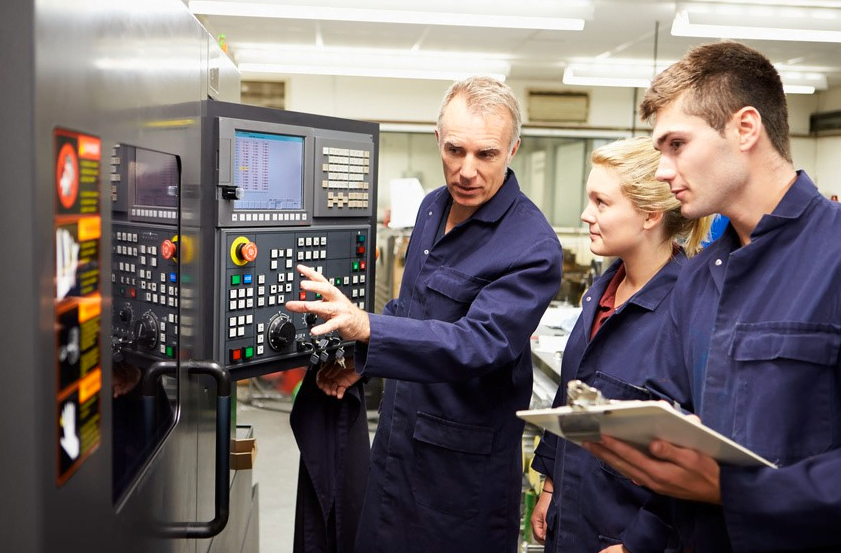
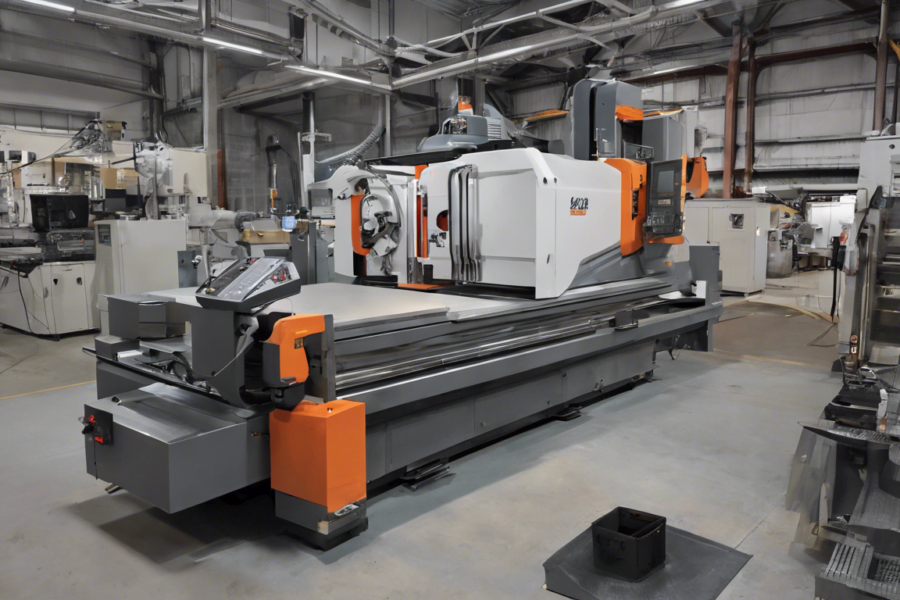
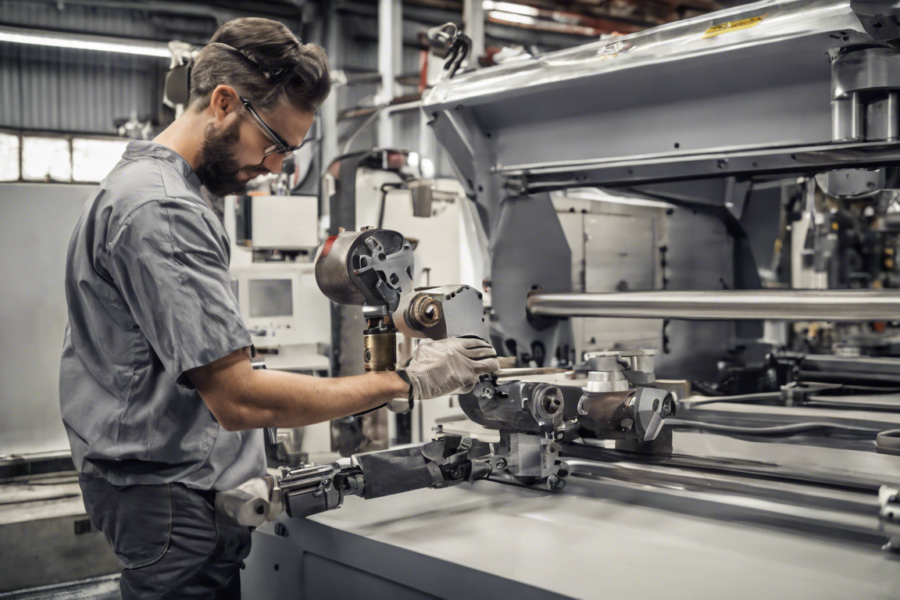
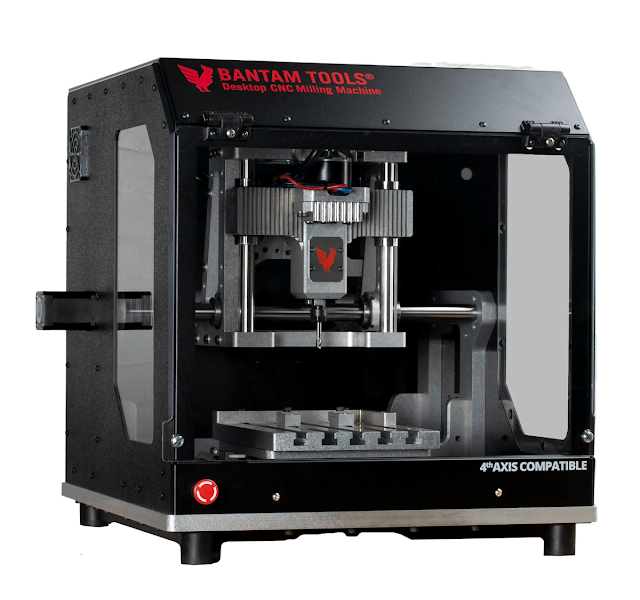
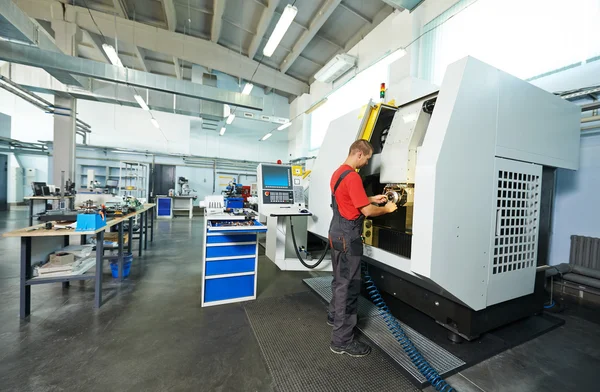
Leave a Comment